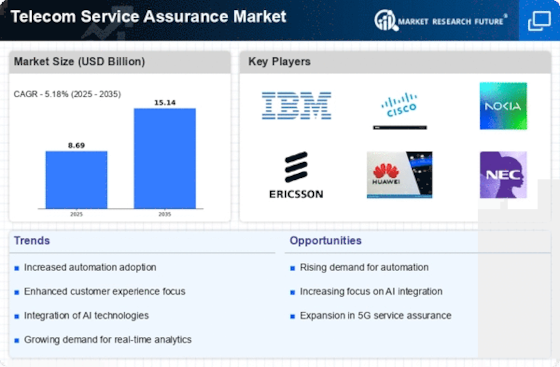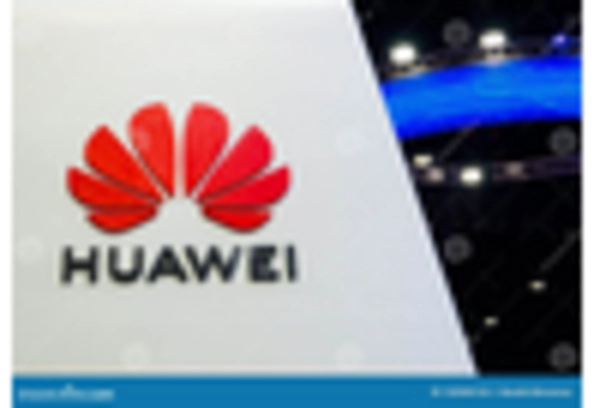Market Trends
Key Emerging Trends in the Telecom Service Assurance Market
Companies operating within the ever-changing Telecom Service Assurance Market employ different approaches to market share positioning, with each aiming at gaining a competitive advantage over others. One fundamental strategy is differentiation: firms emphasize unique features, advanced analytics, or industry-specific offerings when marketing their service assurance products. Consequently, product innovation remains pivotal in the quest for bigger portions of the Telecom Service Assurance Market. Continuous improvements, the use of the latest technologies like artificial intelligence (AI) and machine learning (ML), and keeping ahead of industry trends help meet changing network management requirements. By providing sophisticated yet adaptable service assurance solutions addressing emerging challenges like 5G network rollout complexities, virtualization, or complex network architectures, they attract larger markets and retain technology advancement leadership. Pricing strategies are crucial in market share positioning within the Telecom Service Assurance Market.? Competitive pricing may be used by some companies who wish to align their services with industry standards so as to have cost-conscious customers.? Alternatively, value-based pricing could be employed where such firms are emphasizing efficiency gains realized from their service assurance systems as well as better analytics or proactive maintenance. Strategic partnering and collaborations serve as another means of achieving market penetration into the telecom space for providers of such services.? These partnerships enable organizations to expand by incorporating other players' offerings into theirs, thus providing clients with integrated solutions. Through working with technology providers, among others, these alliances also result in interoperability, thereby ensuring seamless integration of the service assurance tools into the existing telecommunication infrastructure. Effective marketing and branding are critical components of market share positioning in the Telecom Service Assurance Market. Creating a strong brand identity through targeted marketing campaigns can improve visibility and enhance reputation. Customer care is very important in acquiring and growing market shares within the telecom service assurance industry. Geographic expansion is a noteworthy strategy in the telecom service assurance sector. Companies may choose to enter new markets or strengthen their presence in existing ones as telecommunications networks become global. By making service assurance solutions specifically for different telecom operators, companies put themselves in a better position for success since they understand that this market exists across various regions with unique network management requirements.



















Leave a Comment